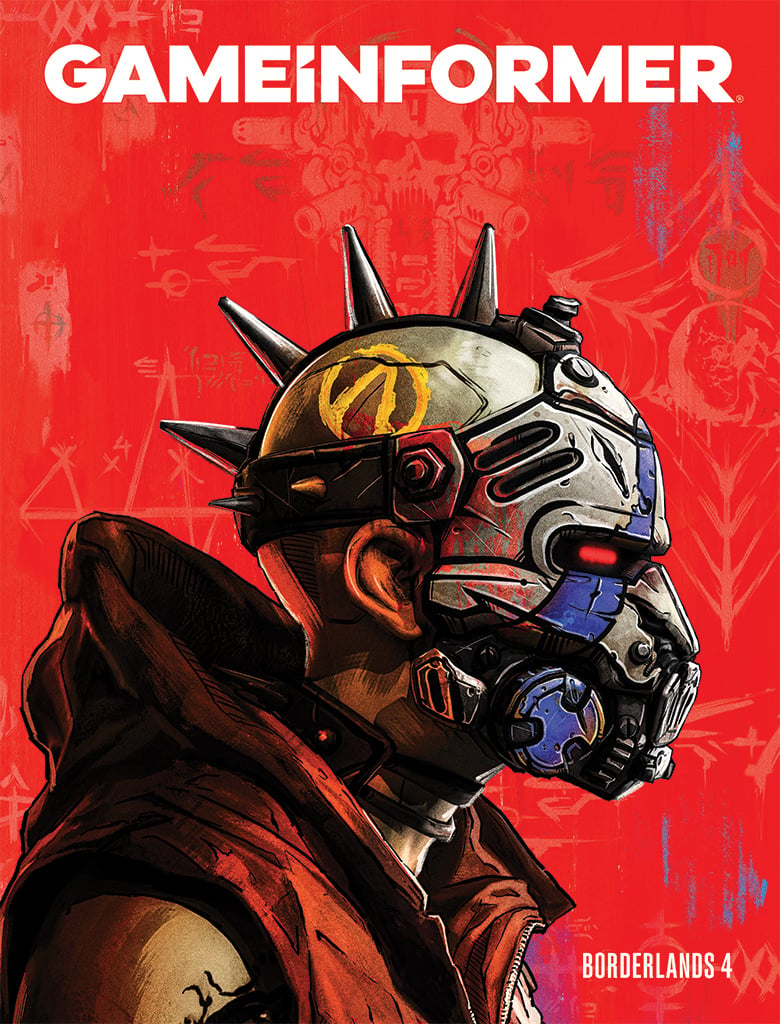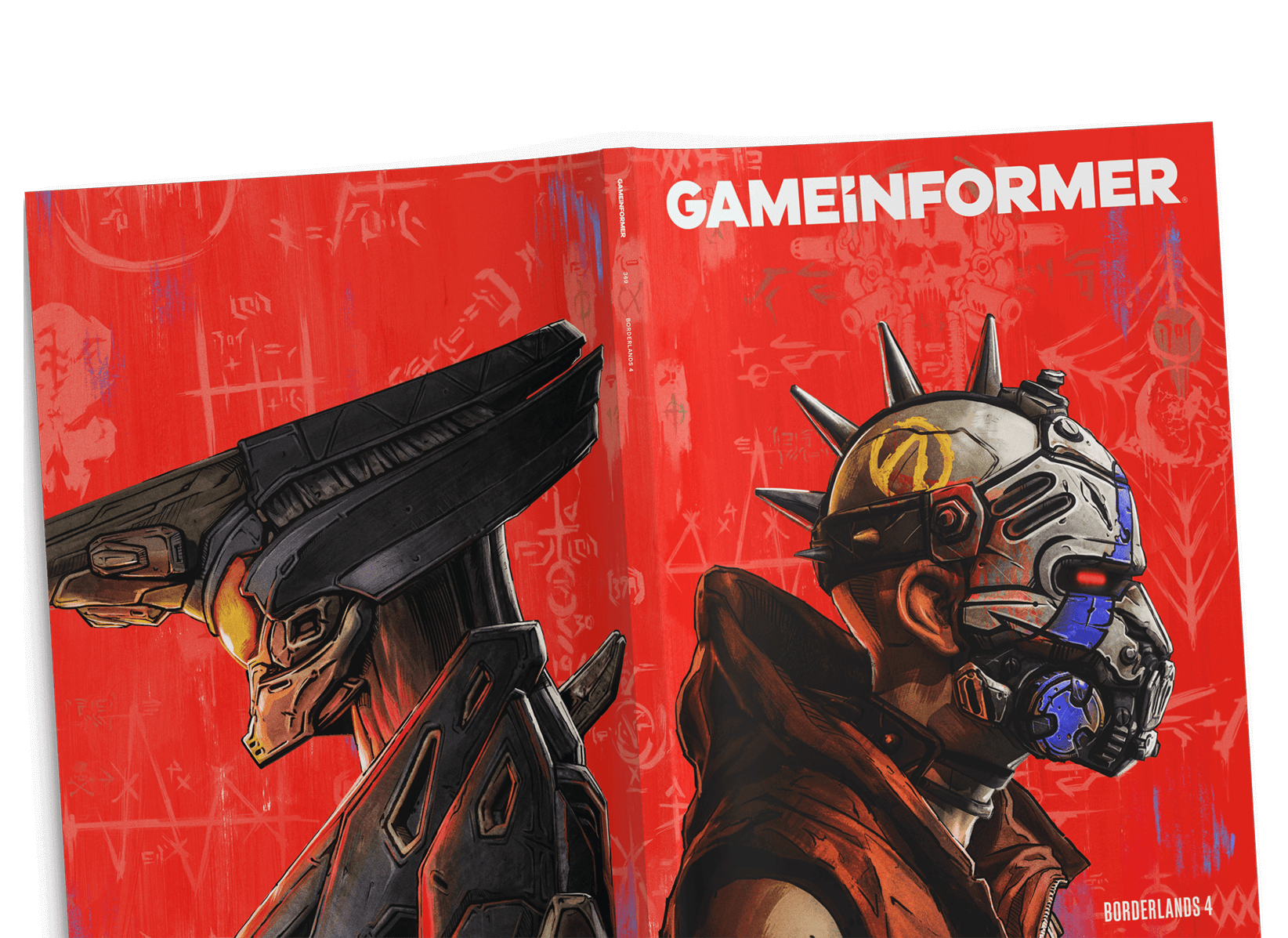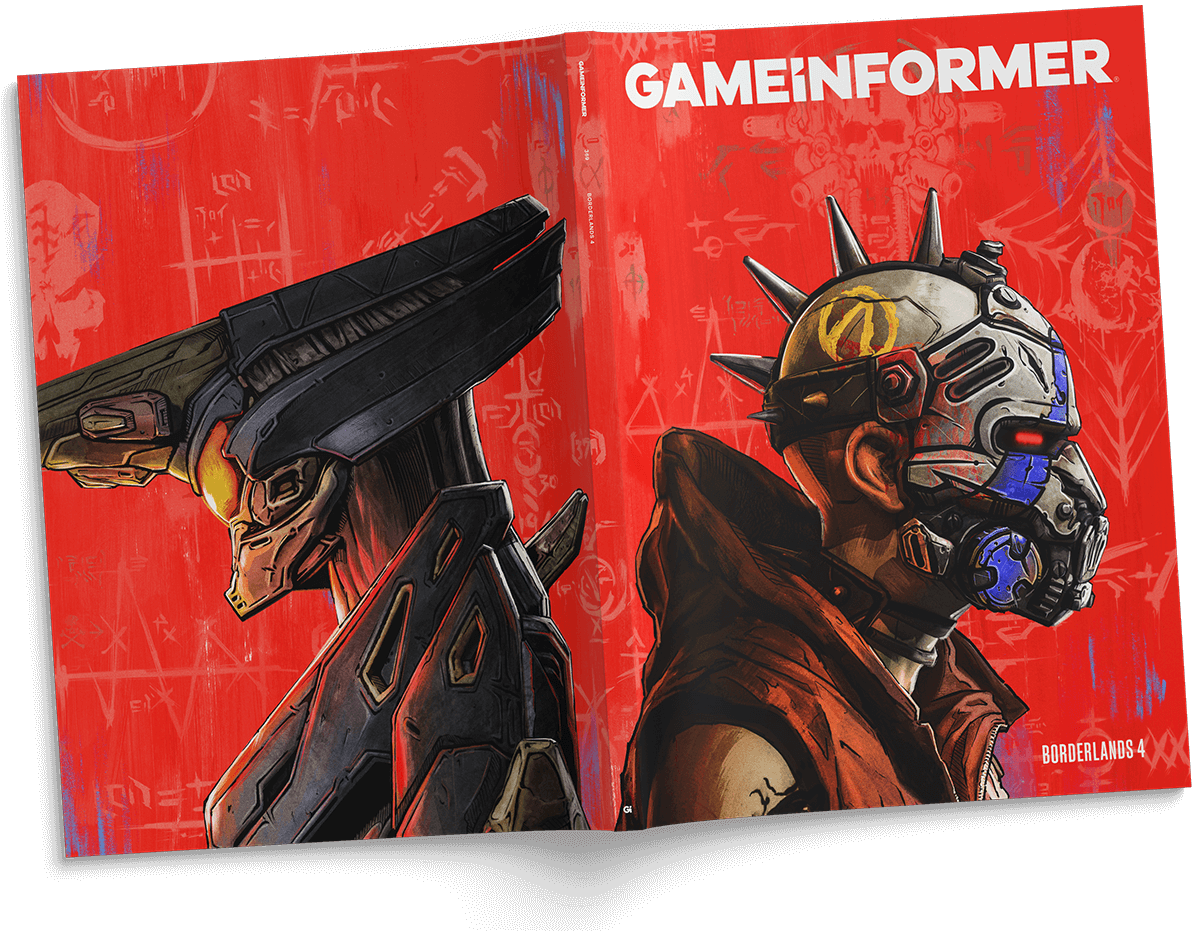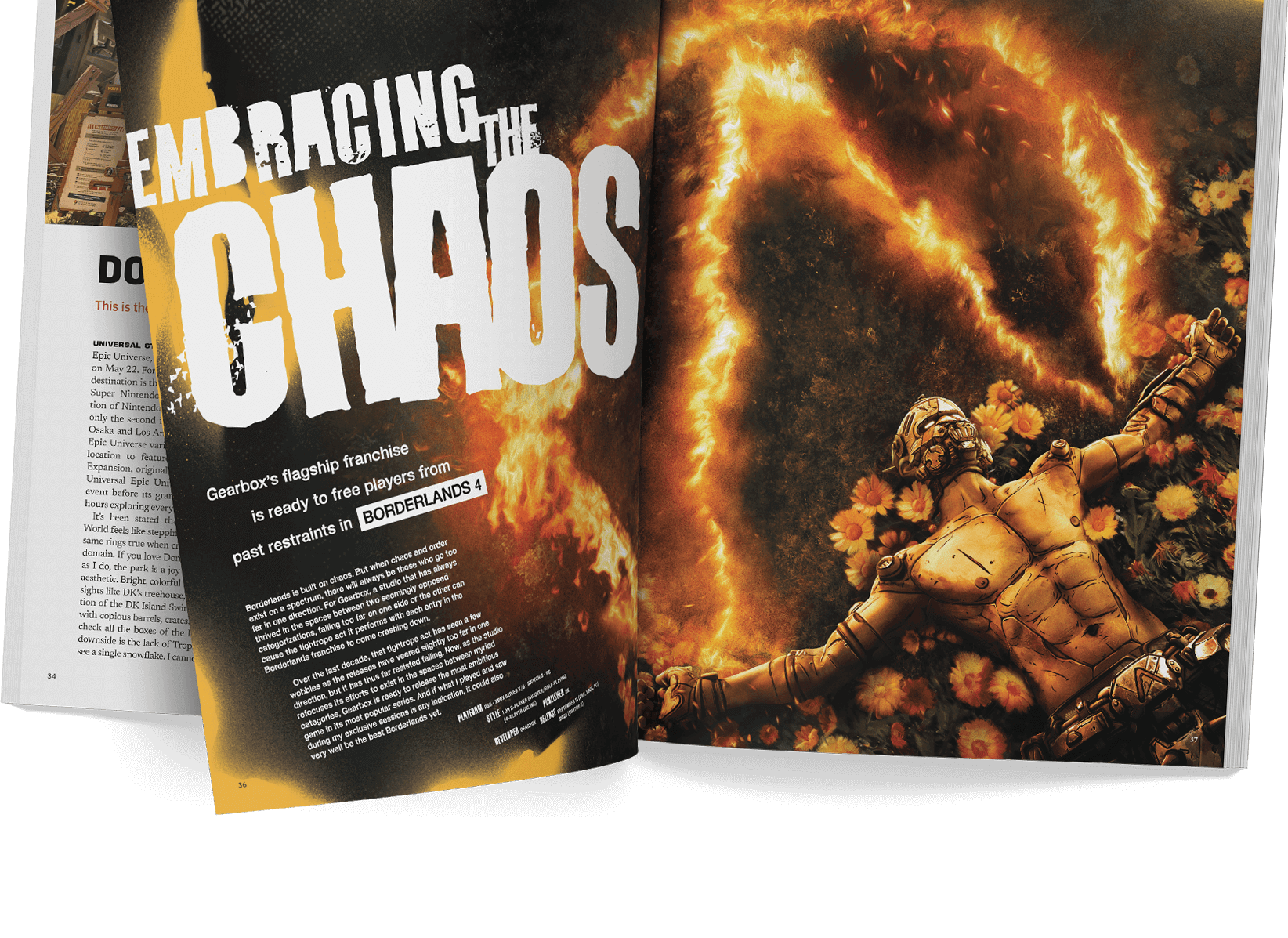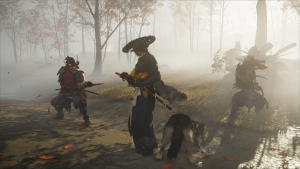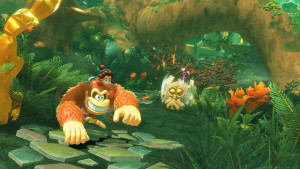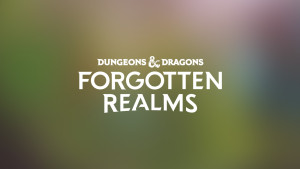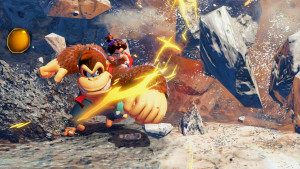Subscribe now to get the Vampire: The Masquerade – Bloodlines 2 issue and a D&D poster pack-in!
Crunch: The Video Game Industry's Notorious Labor Problem

From the 2010 Christmas holidays until May 2011, Krzysztof Nosek, the multiplayer programming lead on Call of Juarez: The Cartel, was working himself into the ground.

Krzysztof Nosek
Due to some "unlucky business negotiations" with publisher Ubisoft, Techland hadn't been given enough time to finish the game. With a release date looming and far too much work left to complete, the team turned to one of the video game industry's most notorious practices: crunch.
"We all had the enthusiasm and drive to create a good game, but there simply weren't enough hours around the clock to fit everything in," Nosek says. "Out of exhaustion we were making stupid mistakes, which required even more patching later on. We would lose our tempers easily, and at some point we developed a pretty surrealistic attitude to the project as a whole."
Even staff with their tasks largely finished – with very little they could actually do to help – were expected to work extended hours. "The atmosphere was that all hands must be on deck since it would be a hit to team morale if some people didn’t sit and crunch while others did," Nosek recalls.
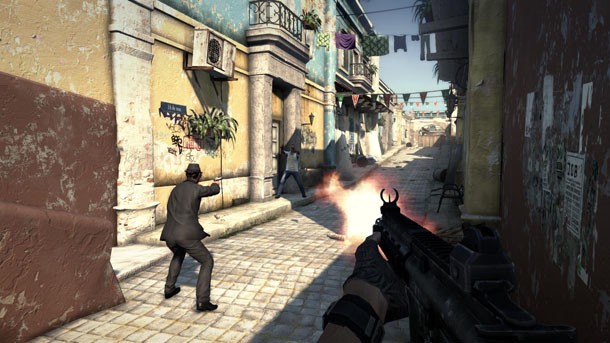
Another former Techland developer (who asked to remain anonymous) explains that, "from Monday to Friday it was around 10 hours a day on average," but it often went well above this. Saturday was usually an eight-hour shift, with a few extra hours on Sunday to "tie up loose ends that would help the team with their planned work for the following week."
The long weeks soon turned into long months, and the crunch began to take a personal toll. Life became work; work became life.

Paweł Zawodny
Nosek describes his mental state during The Cartel's final five months as like being on an extended binge: "Imagine excessive partying for a few days, or marathoning a video game for a few weeks straight when you were younger. You get tired, feel dizzy, behave a bit weird. Quite often you smoke, drink, eat, or take other mindless distractions so your concentrated bursts of focus take a hit."
Paweł Zawodny, the then-head of production and chief operating officer at Techland, says, "Longer crunches turn me into a mindless zombie. I don't care about anything else in my life other than going to work and trying to get the project finished.
"And getting it out does not make me happy; it’s more like relief than satisfaction. Often when those kind of crunches are done, my immune system just turns off, I guess to reset or something, and I usually get ill."
It isn't until after a crunch period, when the time to reflect finally presents itself, that the real damage done can be properly assessed.
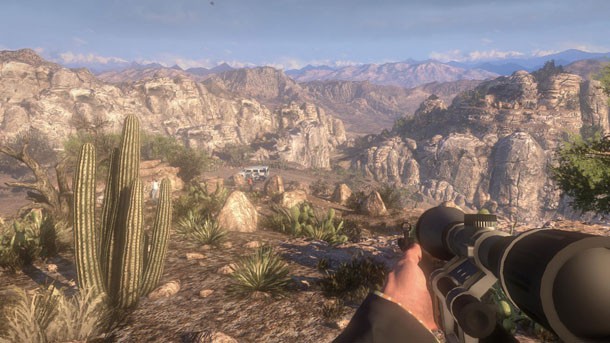
"In retrospect you see the different directions that you and the world around you have taken, and you must judge whether it was worth it or not," Nosek says. "It's a tough moment that can quite often bring bouts of depression or low morale – the infamous 'post-crunch realizations,' as they are known."
The fact that there's a common insider term for this speaks volumes.
"I was perhaps luckier than others," Nosek reflects. "I know stories of divorces, packing on 30 kilograms, etc. But I didn’t come out untouched. I restarted smoking due to crunch. I blame some of my children’s educational struggles on a lack of me being there during their crucial years. I know I should have spent much more time with my wife when we were younger, and so on.
"I recently came across my family photos from that time period and it struck me that I'm sleeping in almost all of them: on the couch, at the table, on the floor of the kids' room..."
Next: Crunch isn't a problem isolated to a single studio.
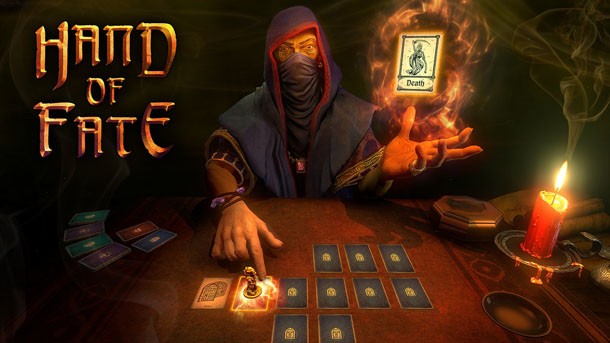
Where There's Smoke...
The story of Call of Juarez: The Cartel's crunch period isn't remarkable by itself. Though we rarely hear these tales first-hand because of non-disclosure agreements and the risk of upsetting a potential future employer, as Nosek himself alludes, there are far worse examples out there.
Which is exactly why this is worth highlighting.
In the video games industry, crunch isn't the exception: It's the rule. Look at the games on your shelves. Statistically, the developers working on more than half of them went through similar experiences.
A 2015 survey conducted by the International Game Developers' Association (IGDA) found that 62 percent of developers said their jobs involved crunch. Of those, nearly one-third said crunch meant 50-59 hours of work a week; another third said 60-69 hours; and just under a quarter admitted to crunching more than 70 hours a week – the highest bracket accounted for. My personal conversations with numerous developers indicate that 100-hour working weeks are not unheard of.
For comparison, the legal definition of a full-time working week in the United States, where the vast majority of survey respondents live, is 40 hours.
What's more, these figures likely downplay the reality: 44 percent of developers who said they don't crunch admitted their jobs require periods of extended hours. Their employer just doesn't call it "crunch."
To add insult to injury, the majority of U.S.-based developers do not receive extra pay for the extra crunch hours. One Electronic Arts employment contract I was shown stated that the publisher had taken into account the "possibility of you working such additional reasonable hours in the setting of your remuneration."
In short: your base salary is already paying for crunch. You, the staff member, owe us, EA, the extra time.

Kate Edwards
"Crunch has been prevalent in the games industry for decades, and while it’s not unique to the games industry, it has become a negative practice that has perpetuated for too long," says Kate Edwards, the executive director of the IGDA from 2012 until June 2017.
"For many companies, crunch has served as a rallying point for building camaraderie and fraternal bonding in the midst of adversity. But in reality it burns people out, discourages them from continuing in the industry, and has seriously negative effects on physical, mental, and social health."
Statistics back all of this this up. The equivalent 2014 IGDA survey found that the most common reason for developers leaving the video game industry for good was "poor quality of life."
At this point, the questions that need to be asked are: "Why is crunch so prevalent in the video games industry?" and "Can anything be done to improve the lives of the people crafting our interactive entertainment?"
Crunch: A Failure, Not A Virtue
"I think most people running companies are scumbags. We try to be less scum-baggy." That's Morgan Jaffit, creative director and co-founder of Defiant Development, the studio behind the Hand of Fate series.

Morgan Jaffit
Defiant doesn't crunch. The studio's management believes it's counterproductive after more than a week or so, when developers become mentally and physically fatigued. Perhaps more important, though, are the philosophical reasons behind this stance. "We just don't feel like we own our staff," Jaffit says.
"We ask people to turn up for eight hours each day and do their best to help get our game closer to shipping," Jaffit says. "I think that if we need more of them, for failings of ours, then that's a price we should pay: it's not a failing of theirs."
Crunch has become such a standard, accepted practice in triple-A studios that it's rarely considered a planning or budgeting mistake. On the contrary, schedules tend to factor in a certain amount of crunch in advance.
The IGDA asserts that for the situation to improve, crunch needs to be reframed as a management failure rather than an inevitable part of development.
"Instead of openly admitting project planning failures, or adjusting deadlines appropriately – or perhaps replacing management with more skilled individuals – the burden is often worn by the rank-and-file employees," Edwards says.
"They are expected to just dig deep into their passion for making games and overlook how their passion for their profession and their specific project is being exploited to cover poor management practices. Sadly, for too long the industry has accepted a sort of fraternal 'rite of passage' attitude towards crunch, as if it’s necessary to prove that one is a 'real' game developer."
Next: What steps can studios take to stop crunch?
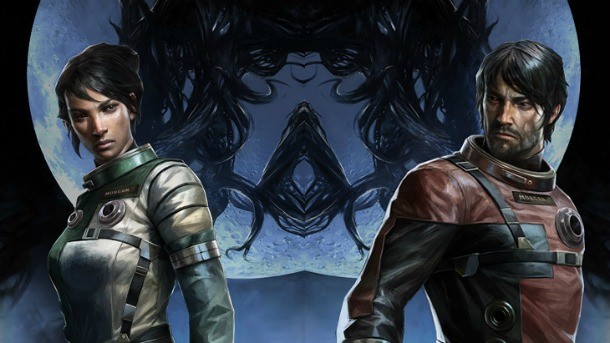
Is It Really That Simple?
Harvey Smith is the co-creative director at Arkane Studios, the developer behind Prey and Dishonored. With more than 20 years experience in the industry, he has held numerous roles, from entry-level QA testing all the way up to running a large, respected studio.

Harvey Smith
Although he denounces mandatory crunch, Smith points out that for some people, making video games is a passion project akin to any creative pursuit. Like writing a novel, recording music, or making a film, the artistic process can be unpredictable; creativity is hard to schedule on a spreadsheet.
“I have mixed feelings about working overtime because I don't feel like any company should ask people to sacrifice their lives or their health to maximize shareholder profits or whatever, but when you really love something… I have indie film friends... and I have a couple of friends that write novels. I can tell you, just like in video games, when you are into it those people push themselves.
"They work enormous hours to make those things happen, and during the final days of a film shoot it's often very complicated to get everyone in place. You're over-budget and everything is going wrong, and lots of people are doing things at the 11th hour. I don't think you should ever have to do that, but if you want to do that..."
Smith has crunched on numerous occasions. His attitude now has changed from when he was younger and new to the industry. "In my case, I wanted to do it on Deus Ex. I worked so many hours it was crazy. Even before that at Origin we routinely clocked 100-hour weeks, and I was just on fire. I was so excited about it.
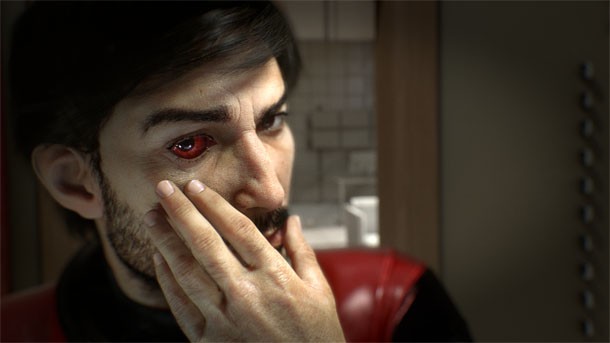
"Later I came to hate it, because there are times on projects when it's not going well and you're not really into it and you're just doing it because you don't want to see the whole team get fired. That's where it gets sh---y. So I think it's a more nuanced subject than people realize. They get on a soapbox and lay down the law about how evil it is, but sometimes we work enormous hours to finish that novel, or finish that film, or to release that game."
Raphaël Colantonio, the co-founder and former president of Arkane Studios, goes a step further, saying there's something inherent about crunch that can bring out the best in people. "Crunch is people in alert mode," he says. "The energy rises overall in the studio. Connections are made faster and more intensely and better. A lot of problems get solved very, very fast. I'm not sure why, but it seems to be human nature.
"I have to say that in order to make extraordinary things, you need extraordinary efforts. It's very unlikely that anyone, anyone that I know anyway – maybe some studio will contradict me – but I don't think anyone pulled off an amazing game with zero crunch. I would be surprised with that."
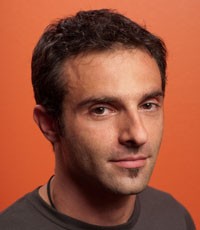
Raphaël Colantonio
Arkane, like many studios, straddles a fine line. It doesn't force employees to crunch, but it does participate in the practice. "We won't fault people for not doing it," says Colantonio. "It's not like we created a culture of hostility to make you feel bad if you're not crunching or something. We understand that people are generous when they crunch for the game."
While this is clearly preferable to mandatory crunch, it's not nearly as black-and-white as it first sounds. After all, if all of your colleagues are crunching around you, is it ever really voluntary? Would you really have the resolve to stick to normal hours while all your friends were working harder and longer than you?
Next: Does crunch happen when it isn't mandated?

Work Culture Exploited: Normalizing The Abnormal
In 2013, in the lead up to the launch of Ryse: Son of Rome, Crytek tweeted that it had “served the crunching team more than 11,500 dinners.” Predictably, this was received about as well as Ryse was. Members of the development community were quick to point out that eating at home with their family is, in nearly all instances, preferable to a free meal while being forced to work long hours.
But take a moment to think about just how strange Crytek's tweet really is: a company boasting about harsh labour practices as part of a social media marketing campaign for a video game. The fact that anyone at Crytek considered this a good idea highlights just how romanticized and normalized the notion of crunch is.
The problem with the approach outlined by Colantonio and Smith (but adopted by many, many more), of not mandating crunch but doing it on a volunteer basis, is that the work culture of many studios makes this effectively impossible.
"Part of the problem in the perpetuation of the crunch model is that many employers will make an emotional appeal to their employees to 'go the extra mile,' 'take one for the team,' etc., in order to justify taking on an unhealthy disruption to their work/life balance," Edwards explains.

With connotations of admirable sacrifice – an extremely convenient myth for an employer – a manager doesn't need to enforce crunch, and can instead rely on a softer form of pressure.
Jacek Brzeziñski, a designer, engineer and producer with credits on The Witcher series, Hitman, and Dying Light, believes this can easily lead to exploitation. "That’s passion, and it’s unavoidable in any creative industry. What is important is that companies don’t prey on such attitudes, because that just leads to burnout and losing some of your best people."

Jacek Brzeziñski
All of the developers I spoke with for this story admitted they crunched because they didn't want to let their friends and colleagues down. The Techland developers on Call of Juarez: The Cartel couldn't even recall a specific order to crunch. It was just something that everyone started doing as they saw co-workers glued to their monitors for ever-longer evenings.
"I think there's certainly much more to crunch than just the stereotypical vision of the 'big bad boss in a suit' forcing ordinary people to crunch while they sit and just count money," explains Nosek.
"There's often no clear distinction between outright bosses/managers and your colleagues. Most, if not all of these people are your colleagues first and foremost so that communal peer pressure plays a much greater role in getting you to push than the decisions coming down from the hierarchy.
"It's a very collaborative work after all, and there's always some shared responsibility felt by the team members. You would think that this general Lord of the Flies atmosphere of collective madness could be managed away somehow, but that’s easier said than done."
The fear of disappointing us, the audience, should not to be overlooked in this equation.
Dave Oshry leads New Blood Interactive, a small developer and publisher of Dusk and Tonight We Riot. He agrees that it's not hard to get developers to crunch without mandating it. "Sure, it's up to management to make sure that kind of stuff doesn't happen, but we do it to ourselves because we don't want to let anybody down."

Dave Oshry
"Video game consumers are the harshest critics," Oshry adds. "So, if you've got to push a release date, or if your game isn't what you've promised, they're gong to annihilate you.
"[Look at] No Man's Sky. Who knows how much more time those guys could have used? And who knows if it was just a disconnect between the marketing and the actual game? But they worked so hard. They killed themselves to get that game out, and then to just have the entire world jump down their throat... that's got to be an awful feeling.
"There's a million studies about what stress does to your body, to your mind, to even simple things like your skin, your hair... Did you see what [No Man’s Sky’s programmer] Sean Murray looked like before and after?"
Next: Unions, treating studios like factories, and the challenge of making a hit.

Finding A Cure
Making a video game is expensive, and with little to no guarantee of success, it's always a risky investment. Bet poorly, misread the ever-shifting marketplace, and quickly a company can find itself in trouble. Economic factors like these are often cited to justify harsh working conditions. For Jaffit, that logic falls apart under scrutiny.
"When you're running a factory, you care about margins... Some people want to run game studios like factories, and that's what they make them do. Some people want to treat humans as if they're an input widget, and therefore if you can carve off 10 percent that's money you put in your pocket and that makes you a clever business person.
"I'm no believer in that for a creative industry. We are in a hit-driven industry. We're not talking about trying to save three cents because that's three cents profit we'll put in our pocket. We're trying to make things that resonate with hundreds and thousands of people and, if we do, we make two or three times what we spent on the product. We might make 200- or 300-percent profit."
In this scenario, savings made by a shorter crunch-fueled development are insignificant given the potential profits a hit will reap. Business philosophy and a disregard for employee well-being, not economic factors, are what lead to crunch, Jaffit asserts.
"It's our job to do everything to align things so that we have the best chance of making a hit," he says. "I don't see how overworking people and crushing their creativity gives you any better chance of creating hits, which is ultimately what we're all trying to do."

For Nosek, Brzeziñski, and Zawodny, the triple-A life is, temporarily at least, behind them. Along with other former Techland, IO and CD Projekt RED staffers, the trio set up their own studio called Strange New Things. Though they hope otherwise, they all admit they might find themselves crunching if circumstances demand, but they're aware of the damage this can cause.
Brzeziñski says that "changing the culture in general" is one of the keys. "It's happening gradually on its own now if you ask me. The medium age of a game developer is rising so there are more and more people who will not spend all their nights and weekends at work because they have families to take care of. Hopefully they also understand the damage of 'crunch mentality' so they do their best to deter it in their projects and among the younger generation of people in the team."
But for some, gradual, cultural change isn't enough; a toxic work environment can need more than time to fix. Oshry and a small-but-growing chorus of developers believe collective organization is crucial.
Like many of the technology-driven industries that emerged after the heydays of the trade union movement, game developers have no collective body to represent their rights at work. Oshry says that a game developers' union is the logical next step.
"There are no standardized institutions. There's no standardized pay. There's no union. Even the screen actors have a guild, but game devs don't... It's either, you're not getting paid enough, or you're getting put on a three to six month contract and then being cast aside. There's absolutely no job security in video game development."
Without that security, and with countless unemployed or freelance developers waiting in the wings for a rare role, it's harder to resist when your employer wants you to crunch. An inexperienced developer has no power in this scenario; collective bargaining would strengthen their position.
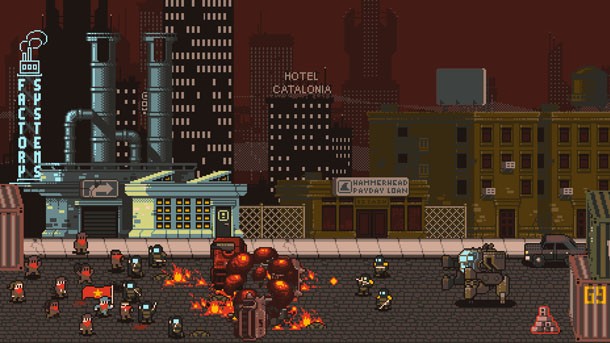
"We're all just looking for our next byline, our next credit, a paycheck," Oshry says. "It's hard. Throughout the entire history of the world, and especially in the United States, getting unions off the ground has not been easy. I wish I could do it.
"I'm doing it on a small scale with my company, trying to pay my guys what they're worth... spreading the wealth around. But it's a scary concept to a lot of people. You start saying unions and people go, 'Whoa, whoa, whoa, whoa, whoa! Slow down, Johnny Red Communist.' And I'm like, 'What? Don't you want to be paid what you're worth?'"
What Can We Do?
We regularly hear that the video games industry is the largest entertainment sector in the world, raking in more money annually than film and music combined. And yet healthy work environments are the exception to a deeply troubling rule. This is an industry that is great at making products, appalling at making sustainable companies.
For this to change, crunch needs to be reframed as a failing not a virtue, workplace culture needs to be carefully managed so that passion isn't preyed upon, and developers need to think long and hard about collective organisation and forming a union to represent their rights.
Employers that do currently take steps to minimize and eradicate crunch need to speak loudly and publicly about their efforts so that others have a positive example to follow. We label our food and clothing as "fair trade" or "ethically sourced" – there's no reason a game couldn't display a "No developers were harmed in the making of this product" sticker on the box. Just as crunch has been normalized, healthier approaches to development need to become seen as ordinary.
And if the well-being of game developers concerns you, there are small steps you can take that will improve the lives of those working so hard to entertain us. Listen to developers when they tell their crunch stories. Support developers that treat their staff with dignity and respect, and let them know you're doing just that.
The next time you're about to post an outraged comment about a game that has just been delayed, consider the other side of the equation and what you're really demanding. Fear of the consumer is a motivator like no other.
The crushing hours, the moments of a life missed that can never be had back – all of this to make our video games. Developers deserve better. Everyone does.
Additional interview by Matt Bertz
